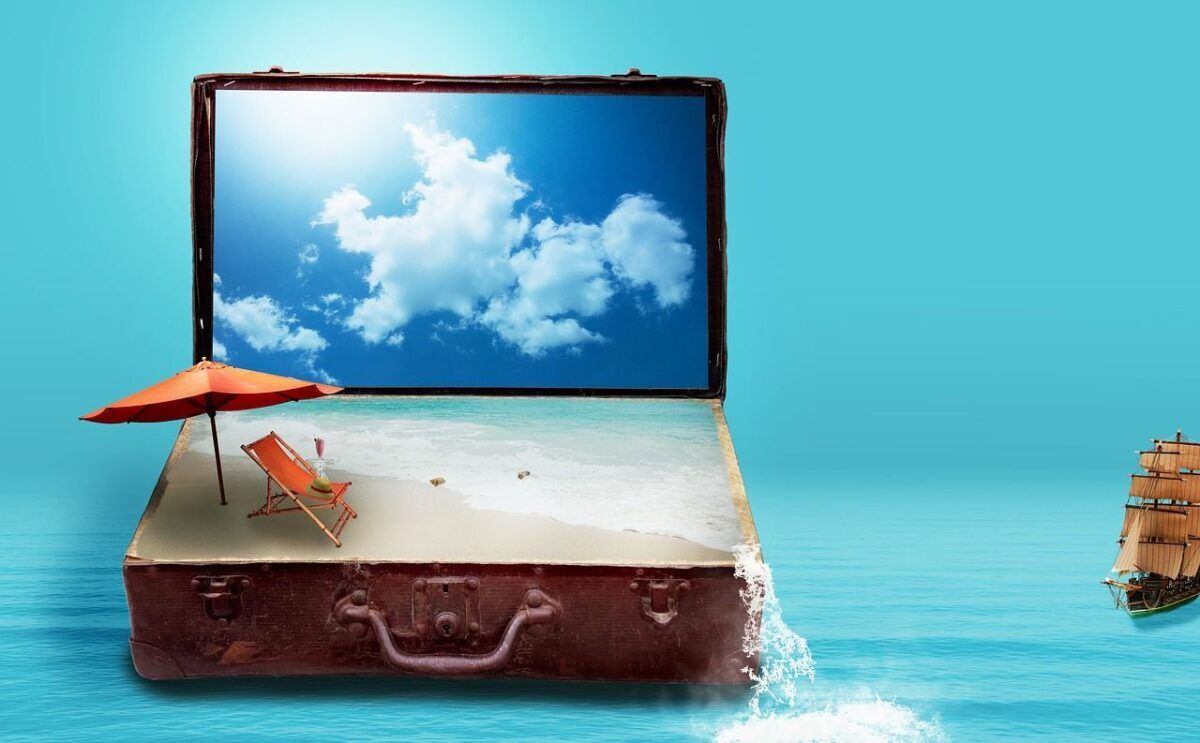Accor Europe & North Africa B2B Leisure Travel Report examines the strategies, technologies and trends that are impacting leisure travel advisors in the recovery and beyond.
As of May 2023, the World Health Organization no longer classifies Covid-19 as a public health emergency and the world recovers from the impacts of Covid. And now businesses in the travel industry are in the new world of travel.
Like no other event in living memory, the pandemic forced businesses to make dramatic changes to their models, and nowhere is this truer than with travel agents and tour operators, who have adapted in numerous ways. From rapid initial shifts of focus to domestic travel and back again; to the provision of new flexible booking policies; and the development of new products that cater to the evolving desires of travelers, travel advisors have had to quickly evolve their models and services.
Nowhere is this more evident than with their investment in technology and accelerated digital transformation. Forced to shift their operations online when physical locations had to close due to lockdown restrictions, travel advisors had to invest quickly to ensure they would be ready to serve their clients when the recovery arrived.
Adoption of digital technology usage in the industry accelerated at pace, as travel advisors were compelled to meet the heightened expectations of their clients, and remain competitive.
TUI Group, Europe’s largest holiday package operator, has invested in technology to improve its services. Last year it was reported that the company was hiring large numbers of software developers as it automated key processes such as handling airport transfers and customer service. It is aiming to turn itself into a digital platform business, including offering travel products through third-parties and providing them with technology. It is not alone.
Online travel agency Expedia Group is focusing heavily on b2b, repositioning itself as a technology platform and providing its technology to other businesses from any sector who want to sell travel inventory, made possible by the development of API technology that could explode the breadth of the travel distribution ecosystem.
More and more airlines are moving into the hotel intermediary space – and in some cases even tour operator space – to increase ancillary revenues. Credit card providers. Supermarkets. There are numerous high-profile examples of businesses in disparate sectors entering the arena of travel sales, powered by platforms providing them with the technology and the inventory.
Bedbanks like Hotelbeds have also adapted. Hotelbeds has shifted significantly from static to dynamic pricing and has been trying to optimize the acquisition of room inventory so it can put a greater proportion of its efforts into sales. It is also working on other business-to-business tech products to supplement its main business as a wholesaler of hotel rooms.
It seems that many of the larger intermediaries in different pockets of the leisure travel ecosystem are becoming increasingly focused on technology. But what is the rest of the travel advisory market to make of this? While metasearch has driven greater price transparency, from 2022 we started to see less and less price disparity between B2C and B2B2C channels thanks to the adoption of dynamic rates across all the main points of sale.
If this disparity continues to contract and price becomes trumped by service as a key differentiator, where should travel advisors place their bets? To what extent will the pursuit of digital business models help travel advisors prosper, or are there other, potentially more fruitful focuses for their efforts?
Consumers are increasingly looking for more personalized and convenient travel options, and they are using digital channels to research and book their travel. The latest data from the Longwoods International tracking study suggests a third of US travelers will use ChatGPT to plan their travels. Some consider AI and ChatGPT to be a threat to travel agents, others view these digital developments as an aid and motivator. By capitalizing on new AI tools to handle certain tasks, human travel agents can focus more on better understanding client’s needs and providing better service. What’s clear is travel advisors must adapt to these changing preferences to remain competitive, particularly when faced by ever-increasing digitally-sophisticated competitors and the need to more efficiently streamline the booking process and reduce the time and effort required to plan travel.
TRAVEL ADVISOR TAKEAWAY 1
In an ever-more digital world, travel planners should stay abreast of the latest technological developments from messaging platforms to payments to ensure they are providing the digital experience their clients expect.
Flexibility
Flexibility has become increasingly important to travelers, primarily driven by uncertainty during the pandemic.
Although the disruption in travel has reduced now, the demand for greater flexibility in customer expectations continues to persist. Expedia’s Traveler Value Index 2023 revealed a permanent shift to favoring flexible reservation policies, stating that more than half of travelers wouldn’t book non-refundable lodging or transportation for an international trip. Advisors are also creating more customized travel itineraries that are tailored to the specific needs or preferences of individual travelers, including personalized recommendations for activities, accommodation and dining. Technology-enabled communication is also assisting in this area, with mobile apps and chatbots often supporting clients in their ability to access their information, seek support and change their requirements more quickly and efficiently.
TRAVEL ADVISOR TAKEAWAY 2
Travel planners must adapt to the growing demand for flexibility by providing more personalized and customized travel experiences, as well as more transparent and flexible rates and booking policies. But the ongoing hunger for flexibility from travelers also demonstrates that they still have a level of uncertainty around travel. Travel planners have a vital role to play here in being able to reassure their clients, guide them through anything they are worried about, and prepare contingency plans, in addition to flexible terms.
Tailored Trips: Expert assistance to alleviate travel-related stress
The Covid-19 pandemic has brought about lasting changes in the travel industry. Even though travel disruptions have lessened, travelers still desire flexibility and may seek professional guidance to ease the stress of travel planning. Additionally, people now want longer trips and unique experiences, often with larger groups. Travel advisors are well-positioned to provide customized itineraries and recommendations, and many have adopted a more consultative approach to build relationships with clients. This shift in approach is driven by the changing expectations of customers who seek a better user experience when planning and booking travel.
While digital tools are useful in understanding customers and improving services, it’s essential to use a human-centered approach to satisfy today’s traveler fully. Although digital communication tools can be valuable, customers prefer speaking directly with a human when they need help, and this interaction can significantly impact the client relationship.
According to a Salesforce study, 83% of customers prefer to speak to one person to solve complex problems rather than using digital tools. Using available tools to offer personalized options, quick responses to queries, and faster turnaround times can help create an emotional connection between travel advisors and their clients. By exceeding customer expectations and making them feel excited, well-rested, or recharged, travel advisors can build the connection that results in loyal repeat business.
TRAVEL ADVISOR TAKEAWAY 3
One of the most important advantages travel advisors have in the travel recovery is the ability to provide a bespoke, personalized and smooth customer experience to take the stress out of travel, exceed the expectations of customers and build emotional, long-lasting connections. To do this they must focus not just on the digital experience, but how they can build an overall customer experience that blends technology with the human touch to make their clients feel great about their trip.












